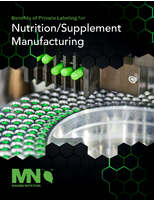Carbon Isotopic Analyzer delivers precision and stability.
Press Release Summary:
With 0.1 per mil precision for 13C/12C ratio measurements in CO2 in 5 min measurement and 0.5 per mil or less drift over 24 hr, G2131-i Isotopic Carbon Analyzer helps scientific applications resolve CO2 dynamics in atmosphere, plant respiration, and ocean. It measures carbon isotopic ratios and lets users redirect experiment mid-stream to pursue most interesting/valuable results. Able to be deployed in harsh environments, unit has been tested for shock and vibration to military standards.
Original Press Release:
Picarro Announces 3x Performance Increase for Isotopic Carbon Dioxide Analysis Enabling Broad New Applications in Science and Research
SANTA CLARA, Calif. -- Picarro, Inc., the world's leading provider of instruments for carbon and water cycle measurements, today announced a new carbon isotope analyzer with three times the precision and four times the stability of Picarro's current industry-leading isotopic CO2 instruments. With a performance specification of 0.1 per mil precision for 13C/12C ratio measurements in CO2 in a 5 minute measurement and 0.5 per mil or less drift over 24 hours, the Picarro G2131-i Isotopic Carbon Analyzer will enable an expansive range of new scientific applications to better resolve CO2 dynamics in the atmosphere, in plant respiration and in the ocean. As with all Picarro instruments, the G2131-i is designed for deployment in the harshest environments anywhere on Earth.
Each Picarro analyzer undergoes rigorous shock and vibration testing that conforms with military specification. The stability and ruggedness of Picarro analyzers enables researchers to go anywhere in the world and make high precision measurements of the carbon isotopic ratios to reveal details about the biological and geological mechanisms that produce and consume CO2.
"0.1 permil precision, which is on par with the best IRMS instruments locked in core labs opens up a whole new world of applications for scientists to explore," said Michael Woelk, Picarro CEO. "Our customers want extremely high performing instruments they can take on field excursions, because that's where the action is in global carbon cycle research."
To date, researchers studying carbon isotopes in the field have had to collect hundreds of flask samples, ship them to an isotope ratio mass spectrometry (IRMS) lab, pay for the testing, and wait months to get results with this precision. With the precision improvements of this new instrument, researchers can now study phenomena previously inaccessible to CRDS analyzers such as high-precision water column isotope measurements for ocean acidification experiments. Further, they can redirect an experiment mid-stream to pursue the most interesting and valuable results. The G2131-i will provide immediate, precise measurements, which researchers can use to pinpoint critical data the first time. "Why go back to a boring lab when you can stay on safari at the cutting edge of science?" said Michael Woelk.
This performance breakthrough is the result of two patent-pending innovations building upon Picarro's cavity ring-down spectroscopy technology. CRDS technology is based on a measurement of the amount of time it takes for light to flow out (or "ringdown") from a cavity that is holding a gas sample. The key to improving the performance of CRDS is keeping the light within the cavity longer. The G2131-i quantifies the amount of light lost through scattering, a highly variable process. Quantifying the light scattering permits the reduction of measurement variability. The second innovation improves the ability of the analysis cavity to contain light, which strengthens the measurement signal. This combination of less variability and stronger signal make the isotope ratio measurement more precise. "We are very pleased that continuous investment in our core technology has paid off with a precision that allows our customers to advance science beyond current lab-embedded techniques and unreliable research prototypes to make measurements anywhere in the world that are precise, immediate, and continuous," said Eric Crosson, CTO of Picarro.
The new G2131-i Isotopic CO2 Analyzer is the latest in a series of breakthrough Picarro instruments that are enabling the mass adoption of isotope analysis for an ever-expanding array of scientific and industrial applications. Different isotopes of an element have the same chemical characteristics but 13C is heavier than 12C because it has an additional neutron in its atomic nucleus. Where 12C and 13C follow identical reaction pathways, they proceed at different rates in nature with 13C often reacting more slowly than 12C. As a result, the 13C/12C ratio in CO2 depends on the biochemical or geochemical reaction pathways. Precisely measuring these ratios enables researchers to understand the microscopic mechanisms that create and use CO2.
The G2131-i Isotopic CO2 Analyzer evolved from Picarro's successful G2101-i Isotopic CO2 Analyzer. It joins a broad lineup of Picarro isotopic analysis instruments that are the first of their kind, including the L2130-i Isotopic Water Analyzer with the world's best precision, the world's only 13C +D Combustion Module-CRDS Isotope Analyzer, and the world's only Isotopic Carbon in CO2 and CH4 Analyzer.
Picarro analyzers are manufactured at the company's Santa Clara, Calif., headquarters and exported to countries worldwide. Backed by Picarro's patented CRDS technology, Picarro provides its customers with unprecedented flexibility to gather high quality atmospheric gas and isotope ratio data anywhere on Earth to make highly informed decisions for energy production, water management, greenhouse gas emissions, air quality management and food safety.
Contact: Alex Salkever, Director of Marketing at: asalkever@picarro.com or (408) 962-3990.
About Picarro: Picarro, Inc. is the world leader in greenhouse gas and optical stable isotope measurement instruments for a variety of applications including environmental, atmospheric, industrial process and food testing. The company's products are based on more than two dozen patents related to Cavity Ring-Down Spectroscopy (CRDS) technology. Investors include Benchmark Capital, Greylock Partners, and DAG Ventures.




